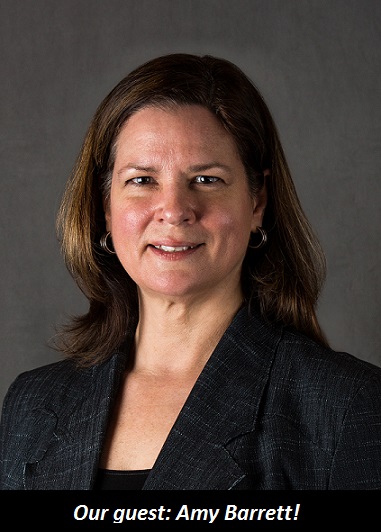Is it possible to completely change careers and built a successful new career in accounting? What is the difference between working for a public accounting firm and the public-sector? What certifications are most desirable?
In this episode of Life In Accounting: The Where Accountants Go podcast, Amy Barrett, CPA shares her expertise on these topics as well as her experiences transitioning from Macy’s to public accounting with Coopers & Lybrand (now PwC) to the public-sector with the Teacher Retirement System of Texas.
Auditing in a Public Accounting Firm
Public accounting and auditing allows you to learn about different industries and company performance styles. You can see what works well and what may need improvement. Amy focused on higher education while she was with Coopers & Lybrand (now PwC) in the Boston office. She got her first experience with investment auditing there. She moved to Austin later and decided to leave public accounting at that point.
Auditing with the Public Sector
Amy accepted a position in Internal Audit with the University of Texas after leaving public accounting. It was a challenging transition because she moved from a large organization with a strong culture that was for-profit to a not-for-profit government organization. For the past ten years now though Amy has served as the Chief Audit Executive at the Teacher Retirement System (TRS). TRS manages assets into the billions. The role has changed during her tenure, which she enjoys. She encourages her team to pursue and maintain the CIA certification. Other certifications that are helpful include the Certified Government Auditing Professional (CGAP), Certified Information Systems Auditor (CISA), Certified Information Systems Security Professional (CISSP), and Chartered Financial Analyst (CFA).
Internal Auditing: A Collaborative Endeavor
Internal audit is auditing done within an organization, which allows you to work with the same people every day in a collaborative environment. Focused on strategy, compliance, and improvement ideas, internal auditors use recent information to determine if things are operating the way the team envisioned. This provides great value to the organization.
Good auditors ask a lot of questions to understand the environment fully.
To listen in on this interview with Amy Barrett, please click below:
Podcast: Play in new window | Download
Subscribe: Apple Podcasts | Google Podcasts | Spotify | RSS


